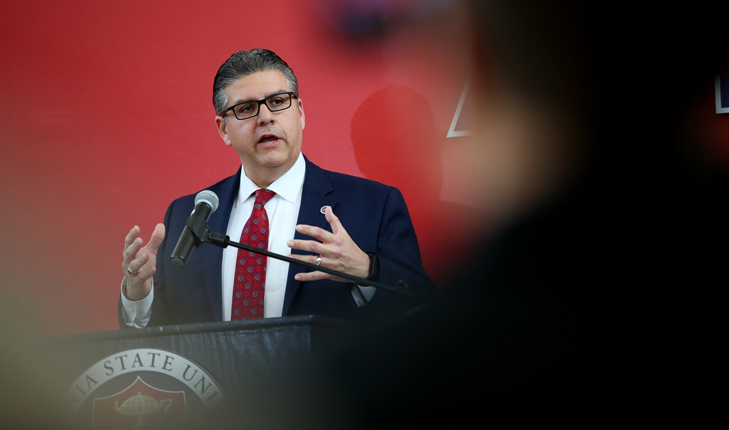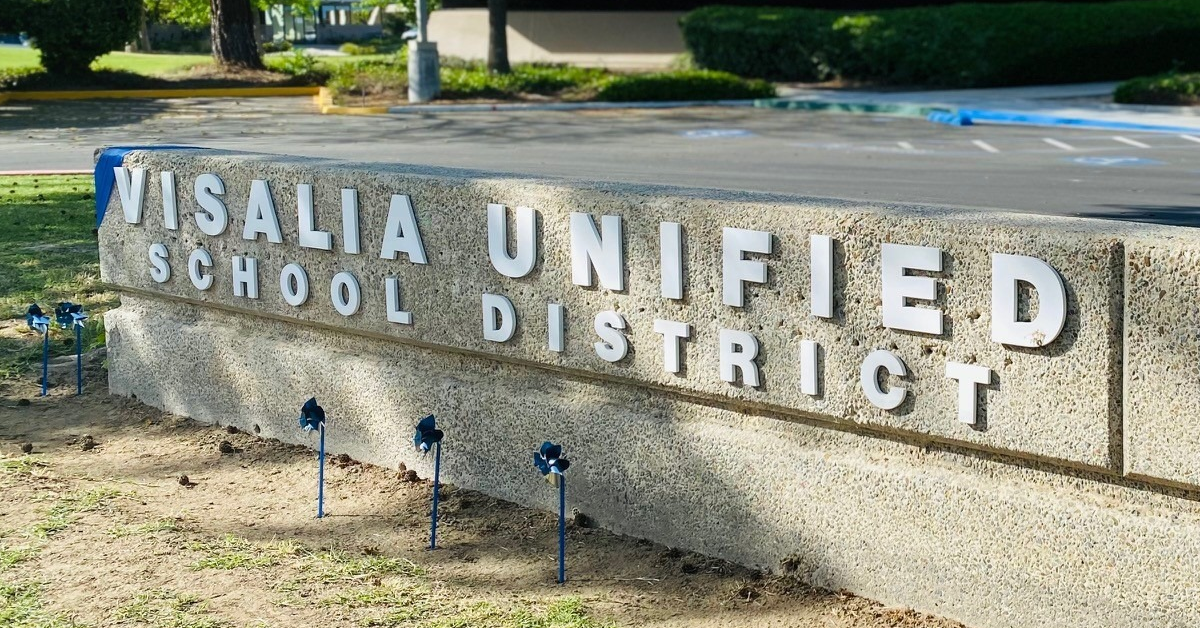A recently released California State University audit into Title IX and Discrimination, Harassment, and Retaliation Assessment found that Fresno State is severely lacking in prevention and education for sexual harassment.
The audit, released late Monday, is the latest in the fallout of how former university president and CSU Chancellor Joseph Castro handled complaints against Frank Lamas, the former vice president of student affairs.
The backstory: Last February, Gannett released a bombshell report revealing that Lamas was the subject of several sexual harassment complaints that Castro mishandled.
- Lamas resigned in 2019 after a formal Title IX complaint against him resulted in an investigation that found him responsible for sexually harassing a woman. There were several complaints made against Lamas throughout his tenure at Fresno State, first appearing in 2014 and lasting until his resignation.
- When he resigned, Lamas received a $260,000 settlement with the CSU system, full retirement benefits and a letter of recommendation from Castro.
- Castro, who had become the CSU Chancellor, only lasted 13 months on the job as he resigned shortly after the report was brought to light. His resignation package included retreat rights to teach as a tenured professor at Cal Poly, San Luis Obispo.
- In response to the findings at Fresno State and other CSU schools, the CSU system hired a law firm to conduct an internal audit into how the 23 campuses handle Title IX and harassment complaints.
The big picture: The audit found that the disciplinary response from Castro in the Lamas situation reflected bias and poor judgment, specifically including the letter of recommendation he wrote and the retreat rights that he exercised to Cal Poly.
- Further, the CSU audit found that “there is a dearth of prevention and education programming” at Fresno State. Any such efforts were found to be ad hoc as there is little required programming beyond the online modules for staff, faculty and students.
- Along those lines, the audit found that the school’s Confidential Advocate, who assists with prevention and awareness programming, has not had sufficient resources to advocate while conducting prevention and education programming.
- “As a consequence, prevention and education has not been provided in a manner that effectively delivered necessary content or reached required audiences,” the audit states. “Students, faculty, and staff alike shared that the online modules are ineffective.”
- The audit also recommends that Fresno State combine its Title IX and Discrimination, Harassment, and Retaliation programs and revamp internal protocols for all investigations and support.
By the numbers: The audit reported that Fresno State now has two Survivor Advocates, the latest of which was hired in January. Previously the university only had one Survivor Advocate to serve the 24,000 students on campus.
- “Administrators reported that the Office needed additional resources because the Survivor Advocate was stretched too thin and could not effectively respond to client needs while also performing proactive prevention and education duties,” the audit reads.
- The Survivor advocate served hundreds of clients of the past three years, mostly students. In 2019-2020, 103 clients utilized the advocate, 99 in 2020-2021 and 116 in 2021-2022.
What we’re watching: Now that the CSU’s internal audit is completed, Fresno State awaits the results of an audit by the California State Auditor.
- In June 2027 the Joint Legislative Audit Committee, spearheaded by Asm. Jim Patterson (R–Fresno) approved an audit into the CSU system’s handling of Title IX violations at Fresno State and the other campuses.










